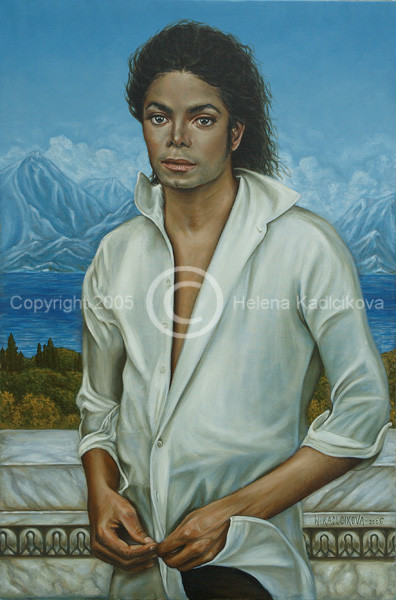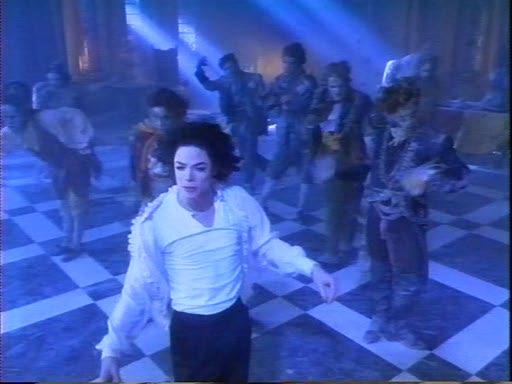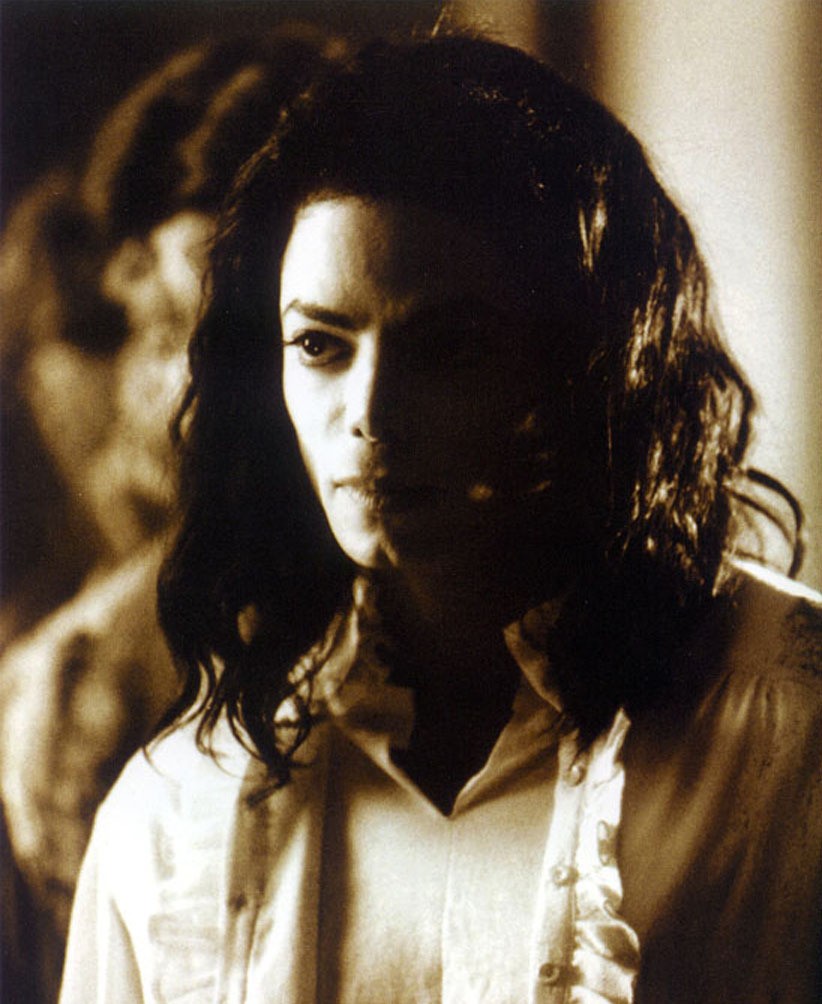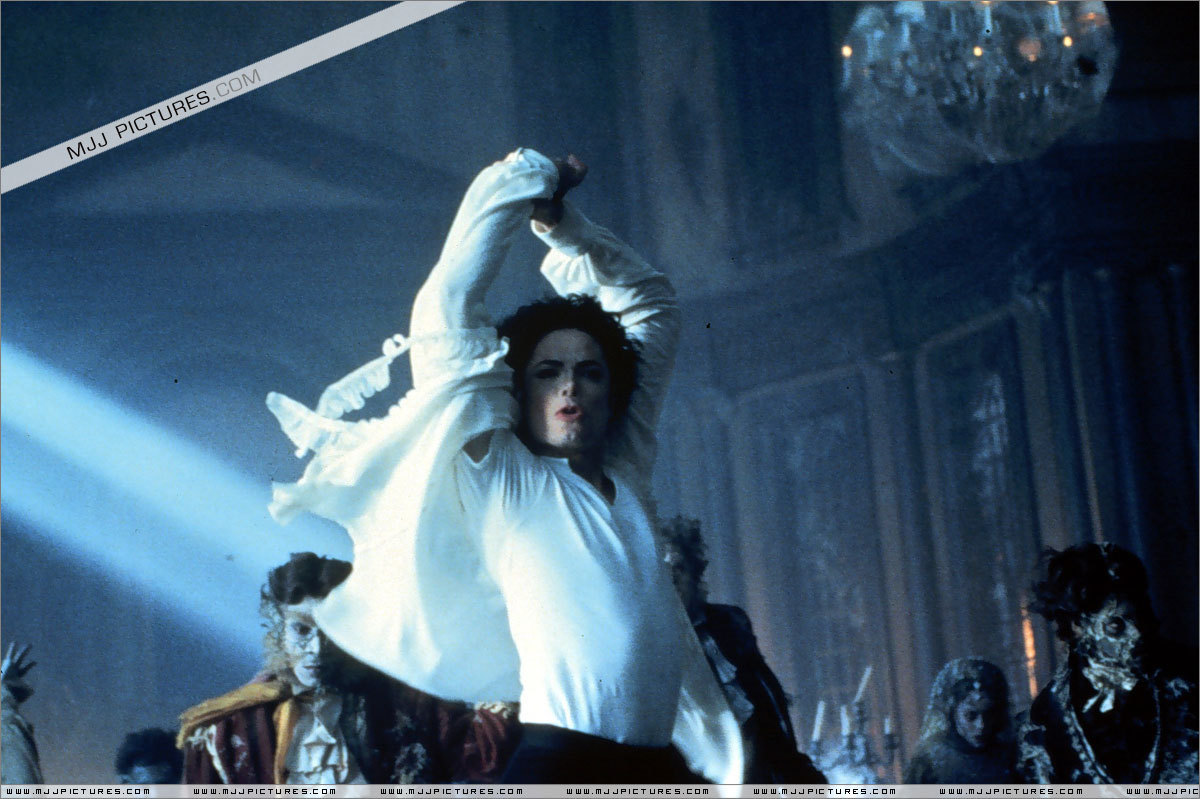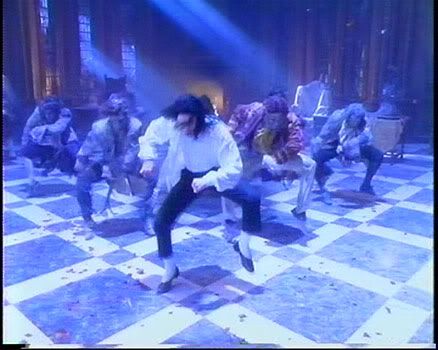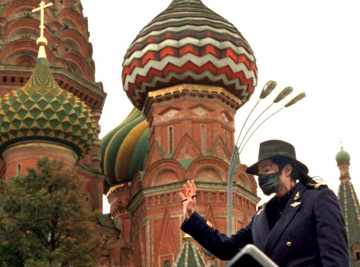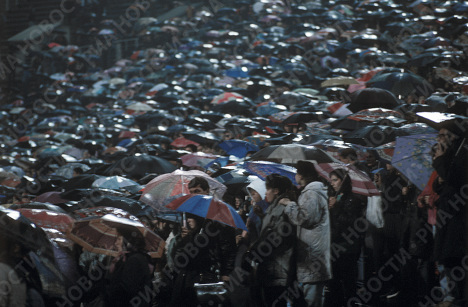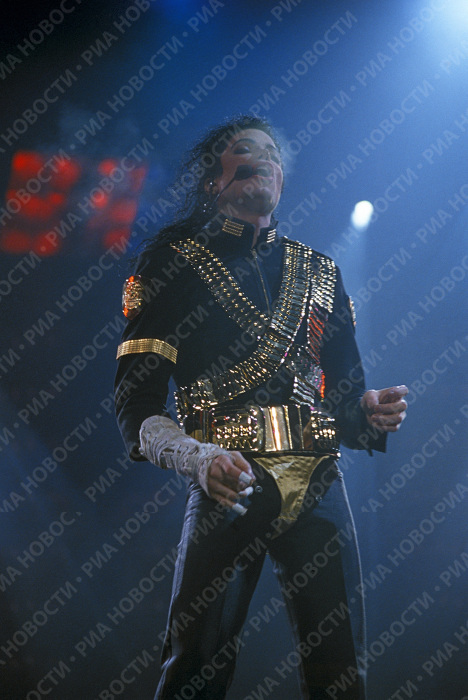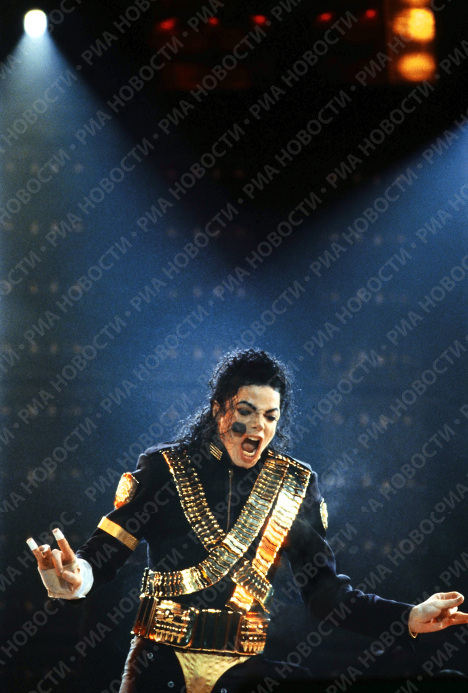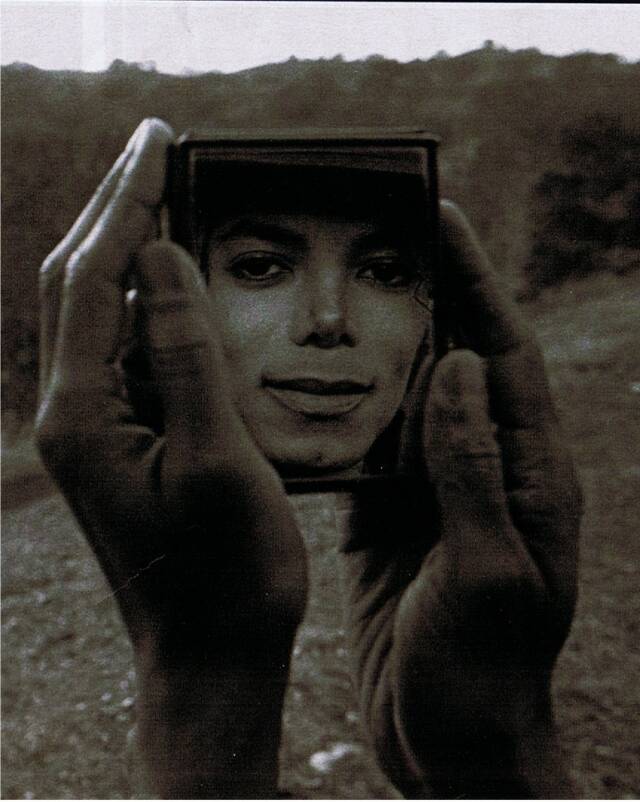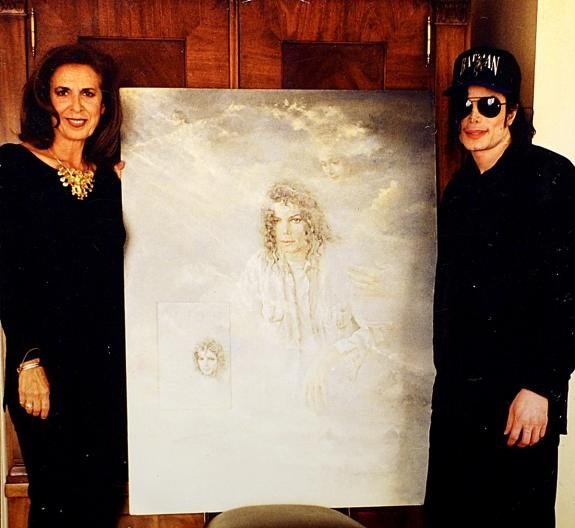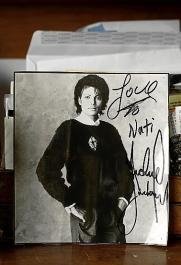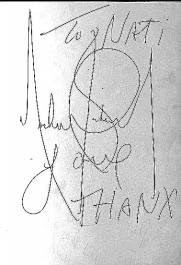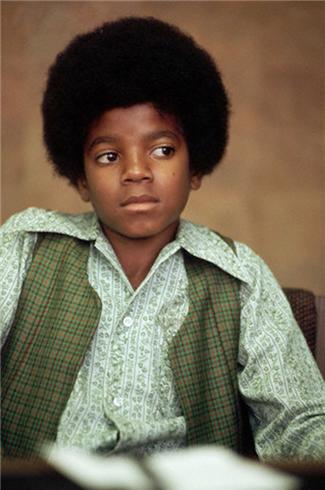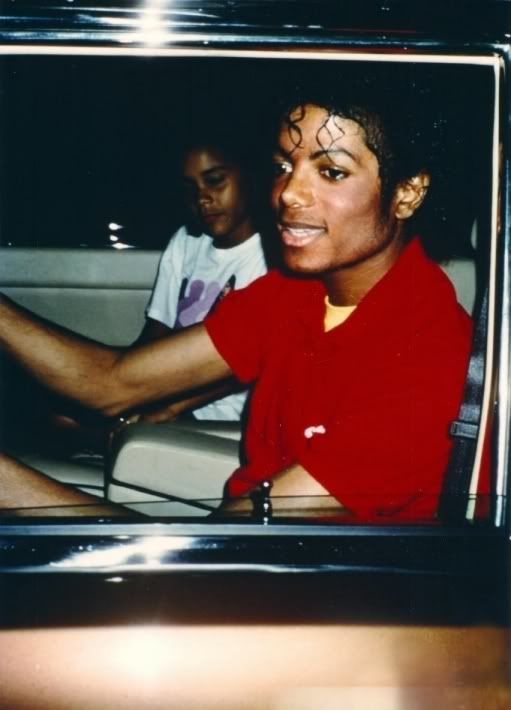Friday, August 20th 1982, 3:30 PM. Somewhere in San Fernando Valley. Bob Colacello arrives at the condominium that Michael Jackson and his family are temporarily renting while their house nearby is being redecorated. Michael, who everyone remembers as the boy lead singer of the Jackson Five, has built a solid solo career for himself—his last album, Off the Wall, has sold over 5 million copies in the U.S. alone. Though he also still records with his brothers, now known as The Jacksons, Michael has branched out to work with such superstars as Paul McCartney, Quincy Jones, Diana Ross and Steven Spielberg, all of whom are close friends. While waiting for a phone call from Andy Warhol in New York, BC and MJ began chatting about another close friend, Jane Fonda.
MICHAEL JACKSON: The night that Henry Fonda died, I went over there and I was with the family. They were talking and watching all the different news pieces. Although her father died, Jane was still able to show an interest in my career, asking me have I gotten the film yet, and I thought that was very sweet. I think that they had been expecting him to die for so long. Months and months and months ago she was talking as though it was going to be any day. It happened and there were tears sometimes and laughter sometimes and they ate a little.
BOB COLACELLO: So what are you doing? Have you gotten a movie to do?
JACKSON: Well, right now I'm just finishing up the album [Thriller —Ed.] and concentrating on that. I'm doing the other album as well, the E.T. album, at the same time. That album is a little new for me because I've never narrated a story.
COLACELLO: What is the E.T. album?
JACKSON: It's a storybook album, a double album and I'm narrating the whole story and singing the song which we have to come up with and write. We've been just meeting and talking about it with Steven [Spielberg] for I don't know how long—getting together and talking about making it the all-time storybook album.
COLACELLO: The album you're doing, you've written everything on it?
JACKSON: I've written four or five songs.
COLACELLO: Steve [Rubell] told me you're doing something with Paul McCartney?
JACKSON: Yes. Paul was just here and a song I wrote called "The Girl Is Mine," we sing together on my album. We're fighting over this girl in the song and it came out beautifully. For his album, we wrote and sang two songs together, his Tug ‘O War Part II. But for mine it's the song that I wrote. There's a rap at the end where we're fighting over her. It's funny.
COLACELLO: You're very open to working with other stars. Very often people aren't.
JACKSON: I'm not actually. Not at all.
COLACELLO: You worked with Diana Ross...
JACKSON: Only very special people. I mean, Diana's like a mother-lover-friend to me. She's wonderful. I just wrote, produced, and edited her next single, "Muscles."
COLACELLO: Did you write the lyrics, too?
JACKSON: Lyrics, music—I just finished that and it should be coming out at the end of the month.
COLACELLO: Where do you find the time to do all this writing?
JACKSON: On airplanes. I was coming back from England working on Paul McCartney's album, zooming along on the Concorde, and this song popped into my head. I said, "Hey, that's perfect for Diana!" I didn't have a tape recorder or anything so I had to suffer for like three hours. Soon as I got home I whipped that baby on tape.
COLACELLO: Do you care about politics at all?
JACKSON: I don't like talking about it.
COLACELLO: You don't get into that at all with Jane [Fonda]?
JACKSON: No, we do. She's wonderful. She teaches me all kinds of stuff. When I was on the Golden Pond set I stayed with Jane in the cabin and we were all alone on the water and we'd just talk, talk, talk about everything. It was the greatest education for me—she'd learn and I'd learn and we'd just play off of each other. We talked about all kinds of things, you name it: politics, philosophers, racism, Vietnam, acting, all kinds of things. It was magic.
COLACELLO: Where were you educated, because you were always on the road?
JACKSON: Private schools or tutors.
COLACELLO: You come from Gary, Indiana? What was it like growing up there?
JACKSON: Actually, I was so small I don't remember. When I was five I was touring, singing and dancing. Always gone, always out of school. I just remember little things like the corner store or certain people in the neighborhood. The high school behind us always had a big band with trumpets and trombones and drums coming down the street—I used to love that—like a parade. That's all I remember.
COLACELLO: Did you like performing as a child? Did you always love it?
JACKSON: Always did. I always enjoyed the feeling of being on stage—the magic that comes. When I hit the stage it's like all of a sudden a magic from somewhere just comes and the spirit just hits you and you just lose control of yourself. I came on stage at Quincy's [Jones] concert at the Rose Bowl and I did not want to go on stage. I was ducking and hiding and hoping he wouldn't see me hiding behind people when he called me on. Then I went up there and I just went crazy. I started climbing up the scaffold, the speakers, the light gear. The audience started getting into it and I started dancing and singing and that's what happens.
COLACELLO: How do you compare acting to performing on the stage?
JACKSON: I love both. Acting is the cream of the crop. I love performing. It's a phenomenal getaway. It you want to really let our everything you feel, that's the time to do it. With acting, it's like becoming another person. I think that's neat, especially when you totally forget. If you totally forget, which I love to do, that's when it's magic. I love to create magic—to put something together that's so unusual, so unexpected that it blows people's heads off. Something ahead of the times. Five steps ahead of what people are thinking. So people see it and say, "Whoa. I wasn't expecting that." I love surprising people with a present of a gift or a stage performance or anything. I love John Travolta, who came off that Kotter show. Nobody knew he could dance or do all of those things. He is like—boom. Before he knew it, he was the next big Brando or something.
COLACELLO: He hasn't done much lately.
JACKSON: I know. I think he's choosing scripts and stuff. It's always difficult for anyone trying to compete against their past achievements.
COLACELLO: Tell me, who do you think has made breakthrough in their work in any field?
JACKSON: I love Steven Spielberg so much. I just love James Brown. He's phenomenal. I've never seen a performer create electricity with an audience like James Brown. He's got everybody in his hands and whatever he wants to do with them, he does it. It's amazing. I've always thought he was underrated. I love Sammy Davis Jr., I love Fred Astaire. I love George Lucas. I'm crazy about Jane Fonda and Katharine Hepburn.
COLACELLO: I saw a picture of you with Katharine Hepburn on the set of On Golden Pond.
JACKSON: I feel honored to know her because there are a lot of people she doesn't like—she'll tell you right away if she doesn't like you. When I first met her, I was a little shaky because you hear things about her—Jane filled me in. I was kind of scared. But right away she invited me to dinner that day. Ever since then we've been best friends. She came to our concert—the first concert she's ever been to—at the [Madison Square] Garden, and she just enjoyed herself. We call each other on the phone and she sends me letters. She's just wonderful. I went to her house in New York and se showed me her Spencer Tracy's favorite chair and his private things in his closet, his little knick-knacks. I think he's just magic.
COLACELLO: Are you a fan of old movies?
JACKSON: Oh, yes. There was a lot of great art, great acting, great directing, great stories. When it comes to stuff like Captains Courageous or Boys' Town, Father Flanagan, Woman of the Year—that stuff is unreal.
COLACELLO: Why don't you write a story of your own?
JACKSON: That's what we're working on right now. We're kind of fooling with it, Quincy and Steven and I—hopefully we'll be able to do something with it. Steven wants to do a musical.
COLACELLO: Would you like to do Broadway?
JACKSON: Not yet. I think it's good for sharpening your skills. It's the best for really reaching the zenith of your talent. You go so far and reach the peak of it and you say, "Maybe this is the best performance I can do." What's so sad about the whole thing is that you don't capture that moment. Look at how many great actors or entertainers have been lost to the world because they did a performance one night and that was it. With film, you capture that, it's shown all over the world and it's there forever. Spencer Tracy will always be young in Captain Courageous and I can learn and be stimulated by his performance. So much is lost in theater, so much. Or Vvudeville. Do you know what I could have learned by watching all those entertainers? It would be unreal.
COLACELLO: Most plays are videotaped now, but not every night.
JACKSON: That's the thing. The actor's tense, he's being taped and things are not falling naturally. That's what I hate about Boadway. I feel like I'm giving a whole lot for nothing. I like to capture things and hold them there and share them with the whole world.
COLACELLO: It seems that what really motivates you is your desire to entertain people, to please people. What about fame and money? Could you imagine not being famous or does being famous bother you?
JACKSON: It never has bothered me except sometimes when you want peace. Like you go to the theater and you say, "Nobody's bothering me tonight, I'm wearing my hat and glasses and I'm going to enjoy this film and that's all there is to it." You get there and everybody's watching and staring at you and at the climax of the film somebody taps you on the shoulder for an autograph. You just feel like you can't get away.
COLACELLO: Is that why you live out here in the Valley as opposed to Beverly Hills where all the other stars live?
JACKSON: Yes, but it's just as bad. Beverly Hills is worse because they go there looking for them.
COLACELLO: You're very close to your parents. Do they live out here in L.A.?
JACKSON: Yes. My mother's upstairs. My father's at the office.
COLACELLO: What's your typical day like?
JACKSON: Daydreaming most of the day. I get up early and get ready for whatever I've got to do, songwriting or whatever it is. Planning the future and stuff.
COLACELLO: Are you optimistic about the future?
JACKSON: Yes. I always like to plan ahead of time and follow up.
COLACELLO: Liza Minnelli's a friend of yours, isn't she?
JACKSON: How could I forget her? I'm crazy about Liza. Add her to the list of my favorite people. I just love her to death. We get on the phone and we just gossip, gossip, gossip. What I like about Liza is that when we get together it's all show talk. I show her my favorite steps and she shows me hers. She's a show-stopping performer, too. She has real charisma. In the future I'd like to record her. I think a person like her should be heard on the radio and accepted that whole thing. She's magic on stage.
COLACELLO: Do you care about fashion much?
JACKSON: No. I care about what I wear on stage. You know what I love, though? I don't care about everyday clothes. I love putting on an outfit or a costume and just looking at myself in the mirror. Baggy pants or some real funky shoes and a hat and just feeling the character of it. That's fun to me.
COLACELLO: You like to act a lot just in everyday life?
JACKSON: I love it so much. It's escape. It's fun. It's just neat to become another thing, another person. Especially when you really believe it and it's not like you're acting. I always hated the world "acting"—to say, "I'm an actor." It should be more like a believer.
COLACELLO: But isn't that a little frightening when you believe it totally?
JACKSON: No, that's what I love about it. I just like to really forget.
COLACELLO: Why do you want to forget so much? Do you think life is really hard?
JACKSON: No, maybe it's because I just like jumping in other people's lives and exploring. Like Charlie Chaplin. I just love him to death. The little tramp, the whole gear and everything, and his heart—everything he portrayed on the screen was a truism. It was his whole life. He was born in London, and his father died an alcoholic when he was six. His mother was in an insane asylum. He roamed the streets of England, begging, poor, hungry. All this reflects on the screen and that's what I like to do, to bring all of the truths out.
COLACELLO: Do you care about making money?
JACKSON: I care about being paid fairly for what I do. When I approach a project, I put my whole heart and soul into it. Because I really care about it, I put everything I've got into it and I want to be paid. That guy who works should eat. It's that simple.
COLACELLO: You follow your own business very closely then?
JACKSON: Oh, yes.
COLACELLO: How old are you?
JACKSON: Twenty-three.
COLACELLO: Do you sometimes feel as though you missed out on childhood because you've always been performing in the adult world?
JACKSON: Sometimes.
COLACELLO: But you like people older than yourself, experienced people.
JACKSON: I love experienced people. I love people who are phenomenally talented. I love people who've worked so hard and been so courageous and are the leaders in ther fields. For me to meet somebody like that and learn from them and share words with them—to me that's magic. To work together. I'm crazy about Steven Spielberg. Another inspiration for me, and I don't know where it came from, is children. If I'm down, I'll take a book with children's pictures and look at it and it will just lift me up. Being around children is magic.
COLACELLO: There is something positive and encouraging about them. You have a lot of animals, don't you?
JACKSON: I used to. Right now I only have two baby deer, one's a boy and one's a girl. They're so sweet. They're gorgeous.
COLACELLO: I'll never understand how people can shoot deer.
JACKSON: I hate it. I hate taxidermy shops and all that crap. I have a llama. I have a sheep—he looks just like a ram with the horns. Louie is from the circus. He's the llama. The ram is called Mr. Tibbs and the fawns are Prince and Princess.
COLACELLO: What are you going to do with them when they grow?
JACKSON: Let them go in the yard and stuff. We have just about two acres.
COLACELLO: What kind of car do you have?
JACKSON: A Rolls. A black one.
COLACELLO: Do you like driving it?
JACKSON: I never want to drive. My parents forced me to drive. Quincy doesn't drive. A lot of people I know don't drive.
COLACELLO: Andy [Warhol] doesn't drive.
JACKSON: That's smart. But it's good when you want a little independence to get away. But I don't go many places, I don't know many places. I just drive down the street.
COLACELLO: You don't go out much?
JACKSON: Only to go to the Golden Temple, a health food restaurant. I'm a vegetarian. Or I go to the arcade and play the game.
COLACELLO: Are you interested in art?
JACKSON: I love to draw—pencil, ink pen—I love art. When I go on tour and visit museums in Holland, Germany, or England—you know those huge paintings?—I'm just amazed. You don't think a painter could do something like that I can look at a piece of sculpture or a painting and totally lose myself in it. Standing there watching it and becoming part of the scene. It can draw tears, it can touch you so much. See, that's where I think the actor or performer should be—to touch that truth inside of a person. Touch that reality so much that they become a part of what you're going and you can take them anywhere you want to. You're happy, they're happy. Whatever the human emotion, they're right there with you. I love realism. I don't like plastics. Deep down inside we're all the same. We all have the same emotions and that's why a film like E.T. touches everybody. Who doesn't want to fly like Peter Pan? Who doesn't want to fly with some magic creature from outer space and be friends with him? Steven went straight to the heart. He knows—when in doubt, go for the heart.
COLACELLO: You're religious, aren't you?
JACKSON: Yes, I believe in the Bible and I believe in God who's name is Jehovah and that whole thing.
COLACELLO: Someone said that's why you don't shave.
JACKSON: Oh no! I don't grow anything to shave. That's got nothing to do with it.
COLACELLO: So you're just a basic Christian.
JACKSON: I believe in truth.
COLACELLO: Do you read the Bible?
JACKSON: Yes, a lot.
COLACELLO: Do you go to church?
JACKSON: We don't call it church. It's Kingdom Hall. It's Jehovah's Witnesses.
COLACELLO: Do you like the Rolling Stones? Do you know Mick at all?
JACKSON: I met him in a bathroom. He was in there with Keith—Keith Moon?
COLACELLO: Keith Richards.
JACKSON: Keith Richards. I came in there and said, "Oh, hi," and we just started talking. Then I just went back into my session. I don't really know him that well.
COLACELLO: Do you read a lot?
JACKSON: Yes. I love to read. I like philosophy and short stories. I like to keep up with the latest best-sellers. The Calendar in the Sunday L.A. Times is my favorite paper. It really lets you know what's going on everywhere. I have my favorite authors—it's not like I just read the best-sellers. I like to see what they are doing and keep with what people are interested in. There's a lot of physical stuff now.
COLACELLO: Do you exercise?
JACKSON: Every Sunday I dance for 30 minutes straight without stopping. I love to do that.
COLACELLO: Why Sunday?
JACKSON: That's just the day I pick. Like I fast every Sunday. I don't eat anything. Just juices.
COLACELLO: Why do you do that?
JACKSON: It flushes out the system, cleans out the colon. I think that's great. To really make it work you have to do it properly. That's the sewer valve of the system. You have to keep that clean like you clean the outside of your body. All these impurities come out of your system because you're not clean inside. It comes out in pimples or disease or through big pores. Toxins trying to get out of your system. People should keep themselves clean.
COLACELLO: You don't read page one of the newspaper.
JACKSON: No. I might look at it but I won't read it.
COLACELLO: Too depressing?
JACKSON: Yes. It's always the same old thing. I like to make people happy. That's what's great about show business. It's escapism. You pay your five bucks to get in and sit there and you're in another world. Forget about the problems in the world. It's wonderful. It's entertaining. It's magic.
Source:
http://www.interviewmagazine.com/music/michael-jackson-1982#page5




